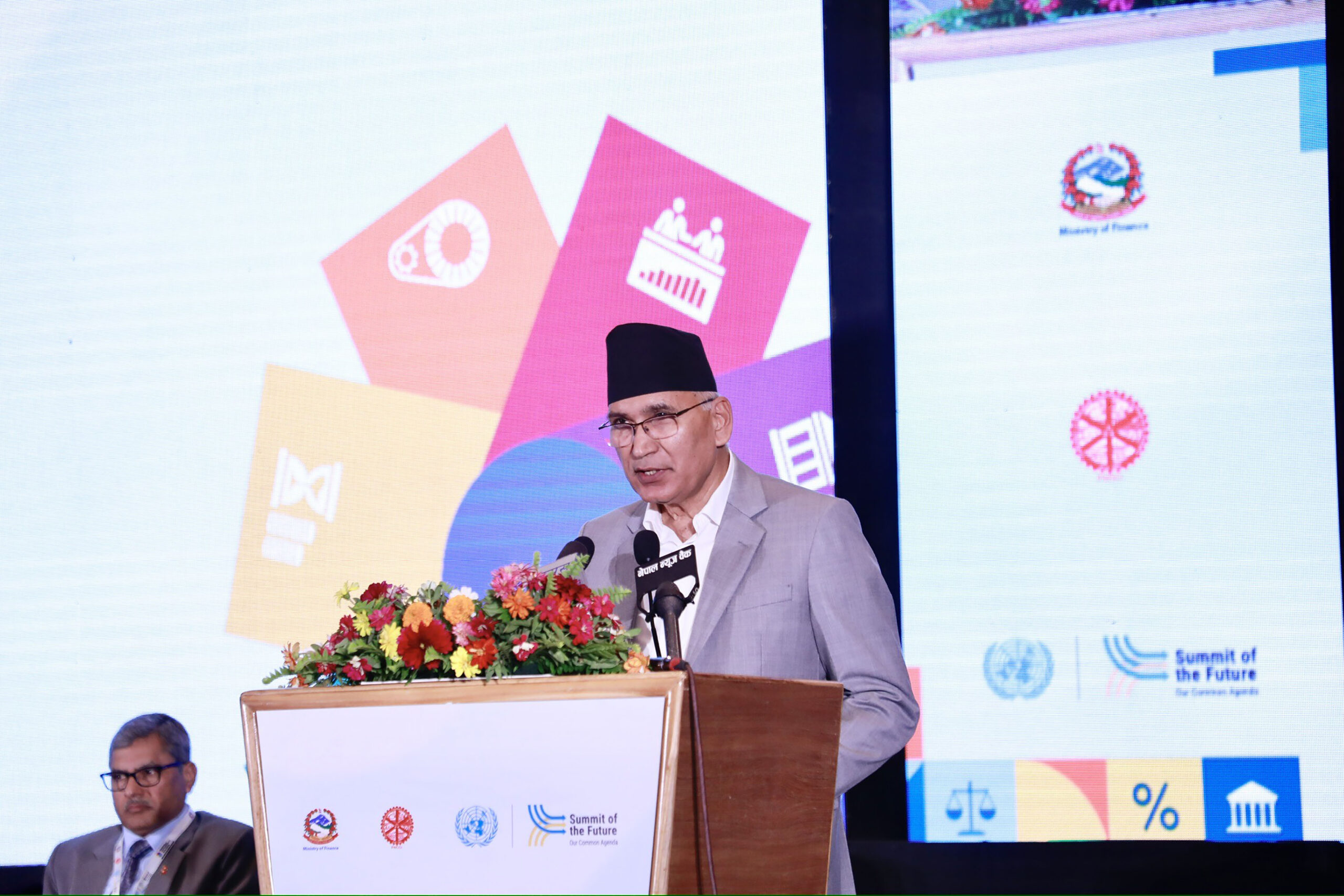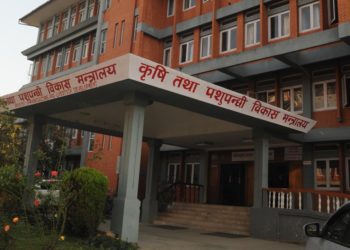KATHMANDU: Deputy Prime Minister and Finance Minister, Bishnu Prasad Paudel, highlighted the challenges of mobilizing resources for development due to the weakening revenue-generating capacity of developing and least-developed countries.
Speaking at the ‘Finance for Development Dialogue’ organized by the United Nations in collaboration with the Ministry of Finance and the Federation of Nepalese Chambers of Commerce and Industry (FNCCI), Minister Paudel emphasized the issues faced by Nepal.
He noted that low revenue collection and increasing public debt obligations are creating significant obstacles.
“The government’s investment in development activities is shrinking as a substantial portion of revenue is now allocated to servicing public debt. This situation poses a risk to our goal of achieving the Sustainable Development Goals (SDGs),” Minister Paudel remarked.
The United Nations has stressed the importance of mobilizing capital for development under the banner of ‘leaving no one behind in achieving the SDGs.’
Minister Paudel pointed out that the scarcity of investment resources is the primary challenge for developing and least-developed countries, which are disproportionately affected by climate change.
He further noted that high trade deficits, slow economic growth, and declining development assistance have exacerbated the difficulties for these nations.
He called for exploring new and alternative methods of development financing.
Minister Paudel emphasized the need to draft a development budget that maximizes the use of all available resources, including internal revenues, private capital, and development assistance.
He also highlighted the relatively low capital inflows from foreign direct investment (FDI) and the external sector, as well as the challenges posed by high public debt, trade deficits, and structural economic issues.
“Nepal is disproportionately impacted by climate change, despite our minimal contribution to global carbon emissions. This forces us to allocate a significant budget to climate change adaptation. Therefore, Nepal seeks to secure new resources and instruments for development finance,” he stated.
The government is committed to engaging in broader discussions with development partners and moving forward accordingly, Minister Paudel assured.
He stressed the need for the private sector to play a leading role in the country’s economic development.
“The 16th periodic plan prioritizes the private sector as a key development partner. The government is dedicated to creating an enabling environment to promote private sector investment,” he said, underscoring the importance of preparing a development finance draft that can attract private capital and focus on result-oriented projects.
Minister Paudel also expressed the government’s commitment to creating employment opportunities in the country. He believes that increasing both government and private investment can generate more jobs and that the government will facilitate foreign investment alongside internal investment.
“Internal capital and technology alone are insufficient for Nepal’s development initiatives. The government is committed to attracting foreign capital and technology, and we will continue to make legal and policy reforms to support this,” he added.
Minister Paudel also mentioned that Nepal aims to graduate from a least-developed country to a developing country by 2026, with a transitional strategy in place.
He revealed that the country is preparing to conduct a ‘Sovereign Credit Rating’ to capitalize on opportunities and attract further investment once it attains developing country status.
He also noted that policy-level efforts have begun to improve public financial management.
Similarly, FNCCI President Chandra Prasad Dhakal highlighted Nepal’s low volume of foreign direct investment. “FDI accounts for only 0.2 percent of our gross domestic product, which is very low for a country like Nepal. We have failed to attract foreign investment as per our targets,” he said.
President Dhakal warned that this situation has led to increased dependency on loans, with public debt doubling over the last nine years.
“Growing dependency on loans is unsustainable in the long term and poses a significant risk to our economic stability, especially as the country transitions from a least-developed to a developing nation,” he concluded.









Comment